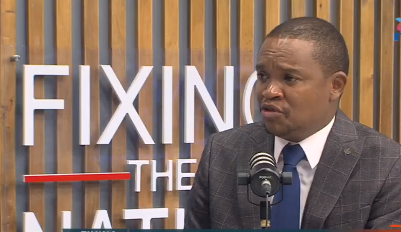

National Assembly Committee on Finance and National Planning chairperson Kimani Kuria said the House will be shifting away from traditional methods of public participation.
“One of the conversations we are having in the National Assembly and the Committee on Finance and National Planning is that the way public participation has been carried out is very traditional,” he said in an interview on NTV.
“Perhaps we need to find a way of recognizing the feedback
we get from our social media platforms as active public participation. We
shouldn’t insist that people must write an email—many aren’t on email, but they
are on platforms like WhatsApp.”
Speaking on April 8, 2025, Kuria emphasized that it was time for Parliament to embrace the digital age by meeting citizens where they already are—online.
“We’re not just talking about Twitter or Facebook,” he said.
“We’re talking about community WhatsApp groups, TikTok conversations, and even
YouTube forums where people are expressing real concerns about taxation, spending,
and economic priorities. That’s where real public discourse is happening
today.”
The MP noted that while formal submissions through memoranda and emails remain important, they do not capture the full spectrum of public sentiment.
“If a video goes viral showing public anger over a tax proposal, should we really ignore that? If thousands of comments on a post express dissatisfaction, isn’t that feedback just as valid as someone speaking at a town hall meeting?
To that end, the committee is exploring the creation of a digital public participation framework that would allow Kenyans to engage in budget debates through approved online platforms.
This could include integrating digital tools to analyze trending topics, collect structured feedback from online discussions, and validate digital submissions through user authentication.
“As we start the public participation exercise, we need to
make that process more inclusive, especially by recognizing that there are new
ways of public participation that are more effective than simply calling people
to a town hall meeting,” Kuria said.
He also hinted that the National Assembly may partner with tech companies and civil society groups to design platforms that make it easier for ordinary citizens to understand proposed laws and submit their views in simple, accessible formats.
“We must stop assuming that just because someone didn’t come to Parliament or didn’t email us, they don’t care. In reality, they are engaging in large numbers—just not in the ways we’re used to.”
He added that by bringing public participation closer to the people—and into the spaces they already occupy—Parliament hopes to reduce the tension and opposition that often arises from what many perceive as exclusion from decision-making.
“If people feel heard from the beginning, and if they understand what the Finance Bill is about before it reaches the debate stage, we believe there will be less resistance and more meaningful dialogue,” Kuria said.
“As we begin this new budget process, we now have a responsibility not just to educate, but also to ensure that the public has an opportunity to understand the process long before it starts.”












